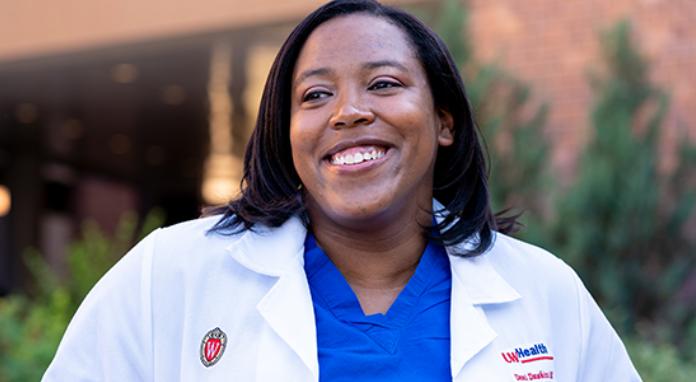Dr. Demi Dawkins Is One Of 33 Black Women Neurosurgeons In The United States
This woman beat the odds.


Photo Courtesy of The Charlotte Post
Charlotte, Tennessee native Demi Dawkins MD is one of 33 Black women neurosurgeons in the United States.
According to The Charlotte Post, Dawkins is a vascular and endovascular fellow at the Semmes Murphey Clinic in Memphis hospital and said she hopes not to be the last of her kind.
“If I wanted to email a Black woman, neurosurgeon, right now to get advice, it’d be hard for me,” said Dawkins, a South Mecklenburg High School graduate. “I’d have to ask around and have to see if someone knows someone. While I would eventually get there, because neurosurgery is such a small field, I think we can do better for each other.”
In her field, Dawkins focuses on cerebrovascular, such as treating strokes, brain aneurysms, and brain vascular malformations.
Dawkins said that as a child, she always dreamed of becoming a doctor one day, and her parents, Phyllis, a Johnson C. Smith University graduate and former Bennett College president, and Bobby, both were enthusiasts of her career.
“Our parents, being as successful as they were, both of them went on to get their PhDs,” Dawkins said. “My dad worked as a chemist and was very successful, and my mom has been a trailblazer in higher education. It felt like they weren’t pressuring me to be educated. I just wanted to be like them.”
Related Story: Edward Tyson Can Sue Bar Where He Was Assaulted In Hate Crime, Higher Court Rules
Neurosurgery is reportedly a non-diversified, male-dominated field across racial and gender lines. Despite being a minority in her field, Dawkins says the fact doesn’t bother her much.
“Most days, thankfully, I don’t think about it,” she said. “I do my job; I do my surgeries. I see my patients. There are many days I could go the whole day and not think that. But it’s not like that every day, and it’s not like that with every co-worker, and it’s definitely not like that with every patient.”
Dawkins said there had been incidents where she’s had to deal with microaggressions on the job and even had patients refuse treatments by her because she is Black.
“There’s a couple of layers to it,” Dawkins explained. “I think there’s the more subtle things when you walk in; you examine a patient, people assuming you’re not supposed to be in the room, assuming you’re not the surgeon when you’re seeing a patient. These little subtle kind of slaps in the face that we have to swallow on a day-to-day basis, it can be discouraging and can lead to burnout and not knowing that there’s anyone else out there; also, it does the same thing.”
Seventy percent of Black general surgical residents have reported having faced racial discrimination at their workplace, and Black female residents have experienced the highest rates of discrimination.